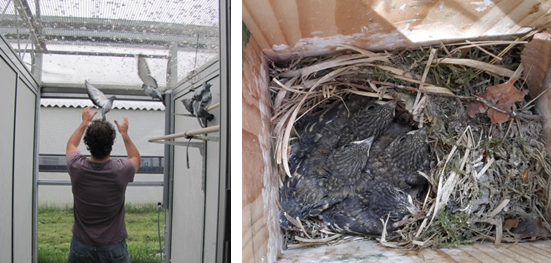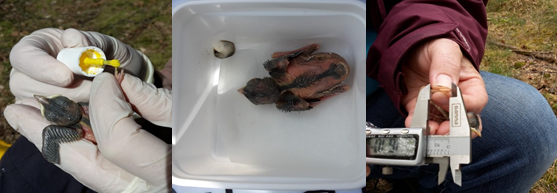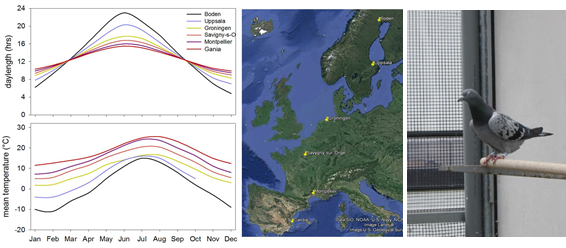Ecophysiology
Elaborate studies of symbiotic microbiomes and their hosts across a wide variety of animal taxa led to the hypothesis that animals cannot be viewed separately from their associated microbiomes. As such, the animal-microbiome meta-organism is proposed to be the object of natural selection. This perspective implies that without a thorough understanding of host-microbiome interactions, we cannot study host ecology and evolution. The gut microbiome is one of the best studied host microbiomes, and is also one of the largest communities of resident symbiotic microorganisms, both in diversity and mass. Gut microbes provide essential functions to their hosts, such as supporting nutrition, and maintaining immune function and metabolic systems. But gut microbes seem also able to influence the behaviour of their host. Gut microbes are not only important to adult hosts, they are also crucial for a proper development of young animals because bacterial products are essential for the development of the immune system, organs, social behaviour, cognition, and metabolic stimulation.

We investigate how symbiotic microbe communities impact the ecology and life history of their hosts, with a focus on the gut microbes of birds. Current topics are the development of the gut microbiome in young birds, gut microbiome-mediated seasonal adaptations in hosts, and the microbiome-mediated functions of the preen gland.
The development of the gut microbiome in young birds
Young animals depend on products produced by their gut microbiomes for a proper development of their immune system, organs, social behaviour, cognition, and metabolic stimulation. Hence a rapid establishment of a gut microbiome after birth is likely important, because only then offspring can benefit from the host-gut microbiome interactions, such as an increased resistance against pathogens and parasites, and an improved energy and nutrient uptake. However, also the composition of the gut microbiome is important as the initial gut microbiome communities can have a long-lasting effect into adulthood on physiological and behavioural aspects of the host. The establishment of the gut microbiome may be influenced by many aspects, such as parental care, diet and food intake (transfer of microbes, sources available for the microbes, etc.) and the environment (transfer of microbes from e.g., soil or nest material, food availability, weather, etc.).

We combine work on captive and wild birds to investigate how the development of the gut microbiome affects the development and subsequent survival of the chicks. We focus hereby on the impact of food availability on the development of the gut microbiome, and on the effect of diet and timing (early of late broods) on the development of the gut microbiome.
Gut microbiome-mediated seasonal adaptations in hosts
Gut microbiomes play a vital role in host physiology and behaviour. Microbes are also able to respond and adapt much more rapid to changing conditions than their hosts. As such they may be able to aid their hosts to adapt to changing conditions, such as seasonal variation. Generally seasonal gut microbiota variation is attributed to seasonal host diet variation; however, seasonal temperature and day length variation may also drive gut microbiota variation. We aim to investigate if seasonal changes in gut microbes mediate seasonal adaptations in hosts. In addition, we investigate how much of the host-microbe interactions are shaped by the physical environment (day length and temperature) and its seasonal changes, and how much are driven by the biotic environment (diet, as well as seasonal physiological changes such as sexual activity.

